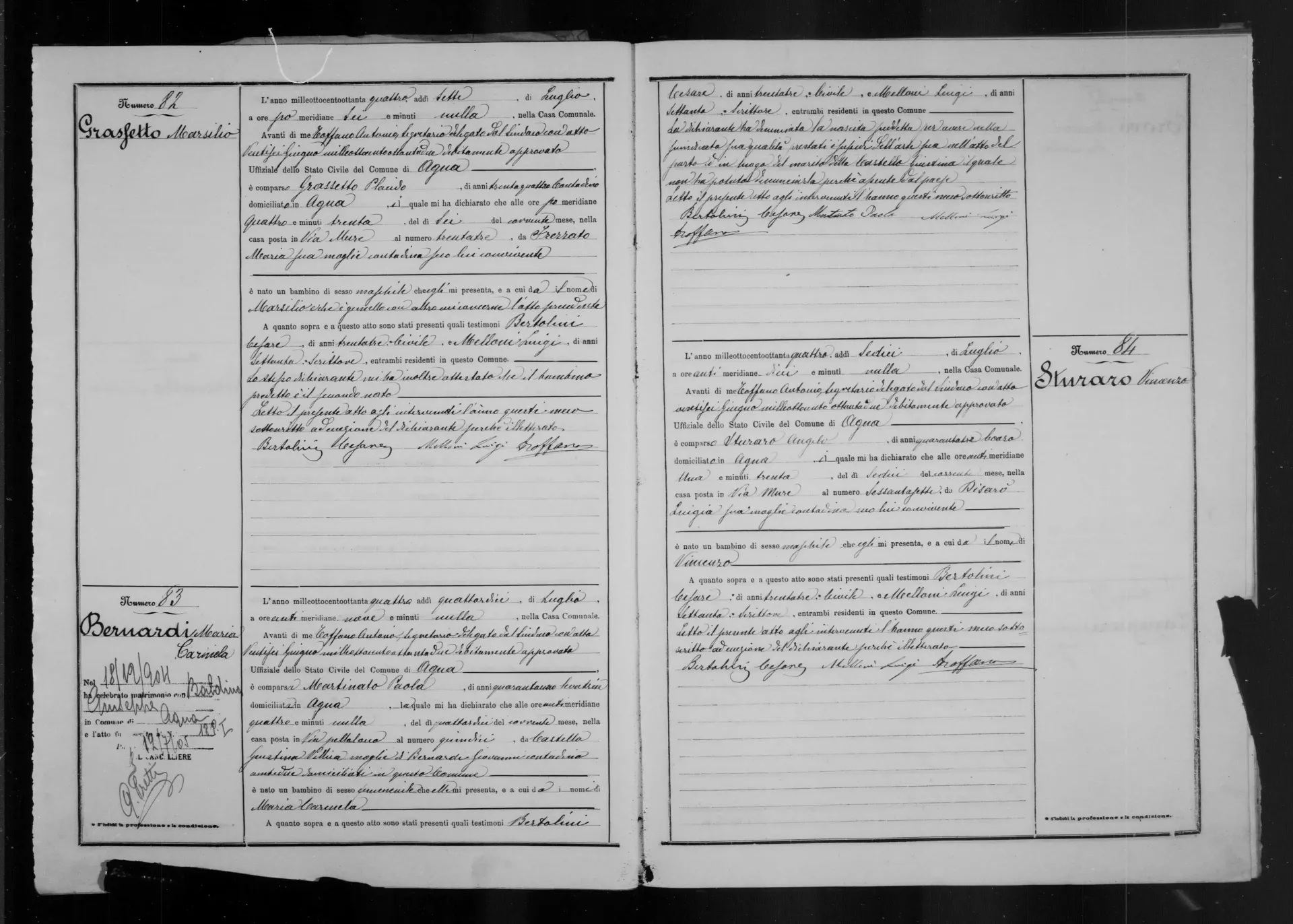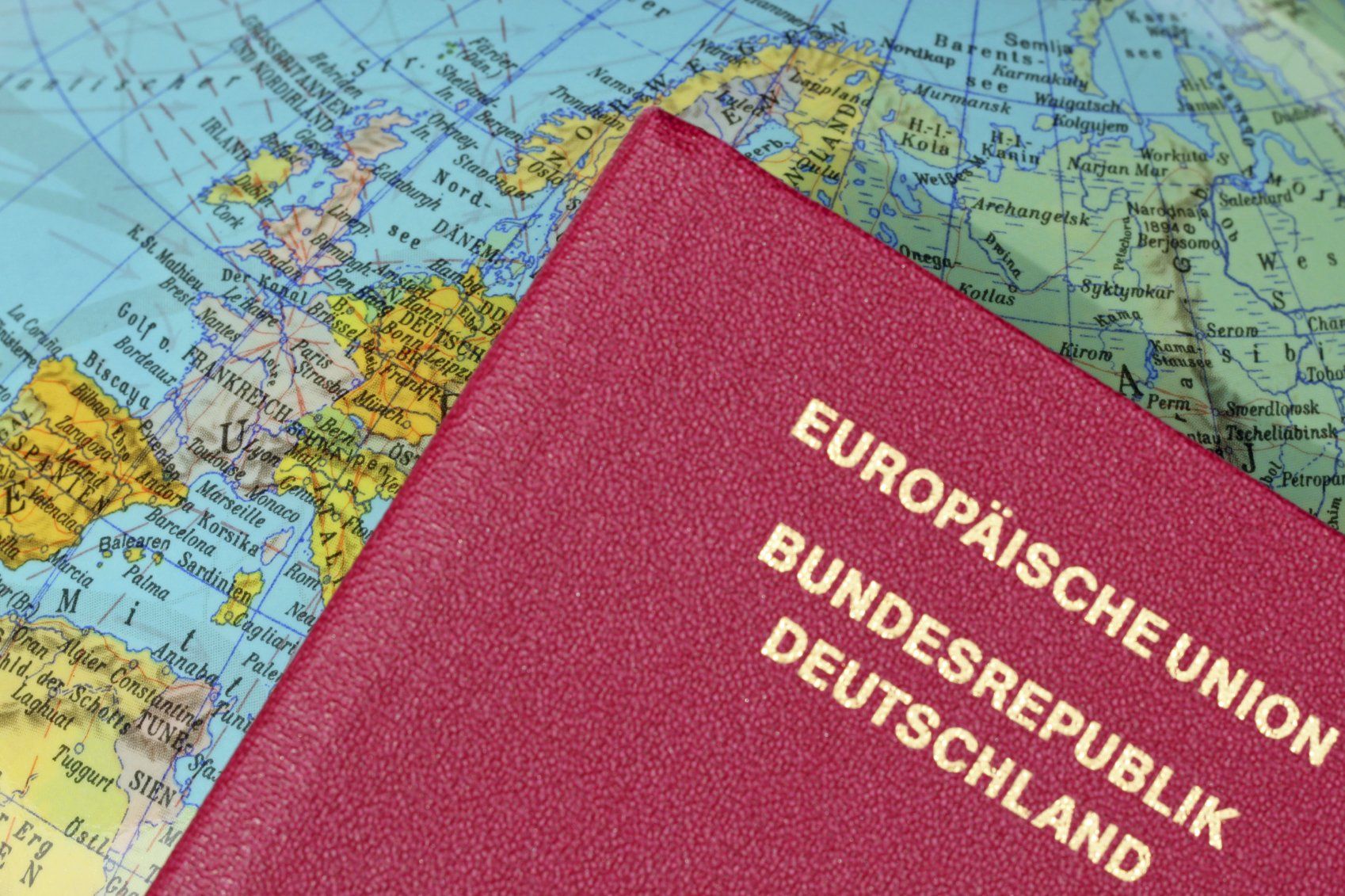Italian Citizenship Application: 7 Steps for your Document Preparation Guide
August 21, 2023
Introduction
When applying for Italian citizenship, proper document preparation plays a crucial role in ensuring a smooth and successful application process. This article aims to guide you through the steps of gathering, organizing, and submitting the required documents and records for the application, either at your local consulate or at a town hall directly in Italy.
By following these guidelines after you have finished your genealogy research and know where your records are located, you can enhance your chances of a successful citizenship application. If you are still looking for Italian vital records, refer to our previous article here.
Preparation of your vital records dossier
1. Gathering and issuing vital records
Begin by collecting or issuing your vital records and those of your family members as direct descendants of your Italian ancestor, including birth certificates, marriage certificates, death certificates and any other relevant documentation. To obtain the required certified copies, applicants must approach the Office of Vital Statistics in the respective State or County where the event occurred.
Ensure the vital records are issued as "certified copies" or commonly referred to as "long form," "full form," or "book copy." It is important to note that "abstract" versions of these certificates are not acceptable. It’s advisable to use documents issued within a year. Please be aware that Church Records from your country of origin are generally not accepted unless specific circumstances apply, this is important to note specifically for very older records.
You will also have to gather the vital records of your Italian ancestor with Italian public officials. Your ancestor’s naturalization status certificate will be issued by the Government of your country. These documents play an essential role in proving your lineage and eligibility for citizenship. Vital records such as birth, marriage, and death certificates establish a direct link between you and your Italian forebear, serving as compelling evidence for your application. Marriage and death certificates are likely to be found in your home country or where your Italian ancestor has lived previously. Please refer to our article Quick guide on how to gather your Italian ancestor's vital records for Italian citizenship application.
2. Validating your eligibility to Italian citizenship
Once you've obtained all the required vital records, including of your Italian ancestor, the next crucial phase in your journey towards Italian citizenship by descent involves validating your eligibility. It's vital to ensure that none of the special rules or restrictive criteria apply to your specific case. This step demands a comprehensive understanding of the Italian citizenship laws, as they can encompass intricate regulations related to factors like gender, generation skips, and naturalization dates. Thoroughly reviewing these regulations in light of your lineage will help you avoid potential pitfalls and complications during your application process. Check our eligibility page
to know more.
3. Correcting/amending vital records if necessary
After issuing all vital records, you have to check for discrepancies and errors. Kindly note that Italian town halls or even Italian consulates now exercise stringent scrutiny concerning any discrepancies or inconsistencies found in documentation, which may ultimately result in the denial of your application. These inconsistencies often manifest as changes in names (first and last), misspellings, adoption of nationalized versions of names, nicknames, variations in dates or birthplaces, and more.
It is of utmost importance to rectify any variations or errors in both your own and your ancestors' documentation. Failure to do so may lead to the rejection of your application by the town hall or consulate. To ensure proper processing of your application, it is imperative that each discrepancy and variation is legally rectified using an official "affidavit to amend a record" accompanied by appropriate documentation. Get in touch with us if you need support with amendments/corrections of your vital records.
4. Translating national vital records to Italian
To meet the requirements of the Italian citizenship application process, it's crucial to translate your documents into Italian. Seek the services of a professional certified translator
to accurately translate the content while maintaining the necessary legal terminology. Some Italian Consulates and Embassies may provide a list of recommended certified translators in their jurisdiction. For example, in the US, you can find a list of certified translators for the Jurisdiction of the Consulate of New York. Check this list for all Italian Consulates and Embassies jurisdictions in the US.
5. Authenticate original and translated national vital records with Apostille
Your vital records (birth certificates, marriage certificates, death certificates, and (non-)naturalization certificate) issued in your own home country will require an Apostille, which is an authentication stamp verifying the document's authenticity so they can be legally used abroad. Please refer to the Consulate's list of US records that require authentication with an Apostille for use in Italy, and proceed to send the original records to the appropriate US Government Office for authentication with an Apostille.
Organizing and Arranging Documents
Once you have gathered and prepared all the necessary documents, it's time to organize them in a systematic manner. Create a file or folder specifically for your Italian citizenship application and arrange the documents according to the provided checklist. Don’t forget to attach a family tree! It also helps to create a little summary index with the pages and key information from every document. This will help streamline the submission process and ensure that no documents are missed.
To help you organize this, we prepared a free detailed document checklist
for you which is available for download.
Application Submission
Once your documents are ready, you can go on to the next phase which is preparing for the application. The most common ways are: 1) Applying at an Italian consulate within the jurisdiction where you reside; or 2) Applying directly at an Italian town hall. The processes are different and each one has pro and cons, you can read more about their differences here.
At Passport-Euro, we always recommend applying directly in Italy for those who can. The reason is that the town halls usually only need a couple months to process your request, while the consulates usually need years or longer. This is even more relevant now given the proposed upcoming negative restrictions that might demand applicants to speak Italian and in some cases even live in Italy for a year before even being able to apply - check our blog post on this. If you want to protect yourself from these changes, click here to know more about our services and how we can help you.
Conclusion
Preparing the documents and records for an Italian citizenship application is a meticulous process that requires attention to detail. By following the guidelines outlined in this article, you can ensure that your application is well-prepared and stands a better chance of success. Remember to gather all the required documents, translate and apostille them if necessary, organize them systematically, and submit the application with care. Good luck on your journey towards obtaining Italian citizenship!
Free available resources
Start your journey towards Italian citizenship by capturing your family's legacy in a visually captivating way. Download your free family tree template
and document checklist
now and embark on an extraordinary exploration of your heritage!










